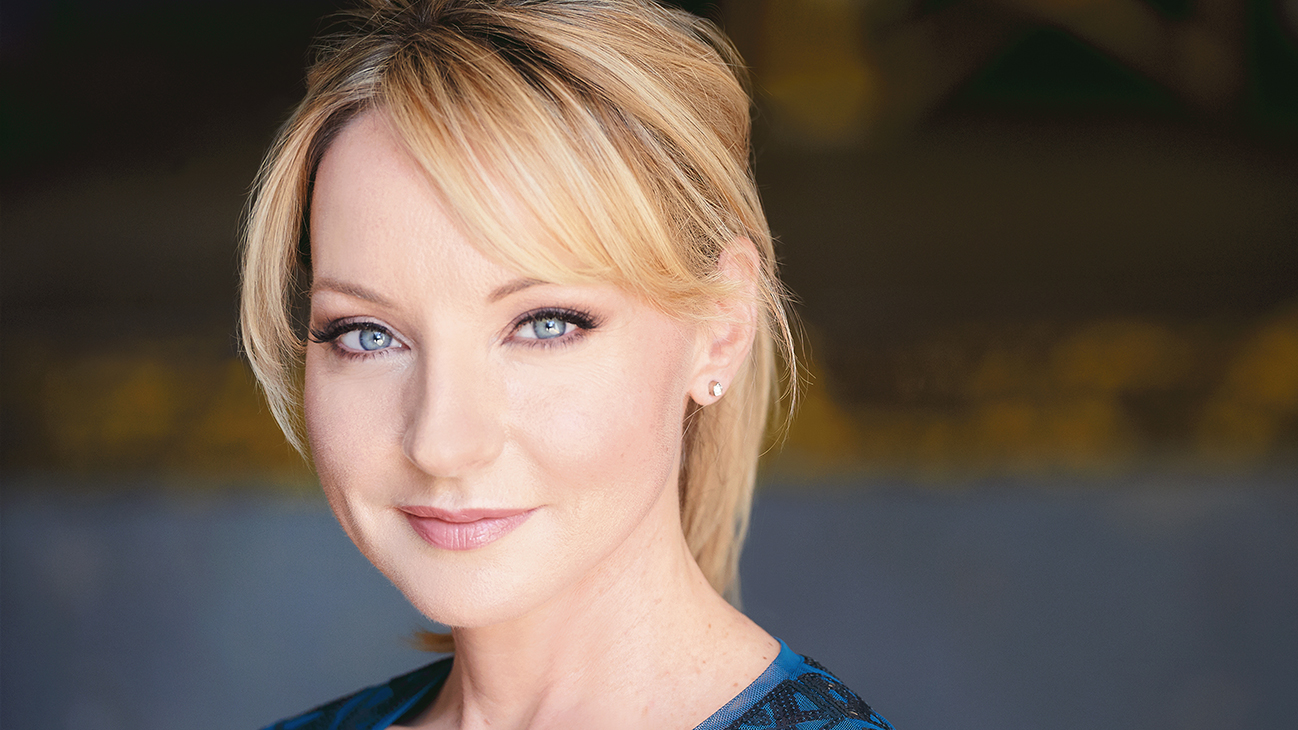Jessica Holmes has brought the house down opening for giants such as Ellen DeGeneres, Russell Peters, Jerry Seinfeld, and Oprah Winfrey. Her hilarious take on life’s challenges as well as her unique knack for skewering celebrities (including Nikki Minaj and Celine Dion) have audiences in stitches. Jessica is also devoted to helping others through wellness keynotes featuring insights from her own experiences of dealing with depression, finding work-life balance, and reigniting passion. A new book–Depression the Comedy: A Tale of Perseverance—shares a lot of that journey, and in anticipation of its release on April 24 we’re sharing some highlights from a Star profile around it:
I read that your first encounter with mental illness was when you had postpartum depression. What was that like?
In retrospect, that was a shorter depression to go through because it was so acute. Our babies are 18 months apart, and that pays off greatly in the long haul, but in the short-run, having kids that far apart — what a challenge. I felt like I hadn’t understood kids properly before I had them. I always felt like I was playing catch-up, even though we had tons of support and a lot of people offering to help. I just felt like I personally couldn’t handle it. And I didn’t know what to do about that. I just kept throwing myself into my career but then when I would come back home I felt so much guilt for not being an awesome mom. This sort of anxiety was growing in me that I was failing them and not handling things the way I should be handling them. And it got to a point where one morning I woke up and said, “I can’t look after the kids this morning.” And (my husband, actor Scott Yaphe) said, “OK, well don’t worry. I’ll look after them and you come down when you’re ready.” And I said, “No, I seriously think I can’t look after them ever.” I felt just paralyzed like I needed to stay in bed the rest of my life. And Scott did this little moonwalk out of the room and said, “I’m just going to give the doctor a call.” And I was diagnosed with postpartum depression and started on medication that day.
How were things after that?
I would say for sure that within maybe four months of that I was healed. I was better. I learned to not sweat the small stuff so much by going to therapy and talking through some parenting things and realizing nobody has to get it perfect. It’s going to be a learning adventure for parents and kids alike. And the medication helped. I felt like, “OK, I’m not having any more kids. I’ll never be depressed again.”
But about four years later it came along again and it was different. The depression that came later snuck up so slowly and it wasn’t necessarily as anxiety based, it was more sort of not enjoying things as much, not finding any spark in my creativity. I loved my kids so much, and they were the high point of my life, but everything else sort of paled. I didn’t want to be around other people. I didn’t want to be open or affectionate with my husband and really pulled away from a lot of things and a lot of people to the point that I stopped working completely for about six months. I just kept thinking “I don’t think I’m in the right career; things just don’t feel right.” Then Scott and I went to marriage counselling, and in the first meeting, the therapist said, “Ah, this is textbook depression.” So, I was glad she said that because it meant that maybe Scott and I weren’t the problem. Maybe depression, which is — knock on wood — “fixable,” was the problem. I was relieved but also disappointed that it had snuck up on me.
. . .
If there was just one thing you could say to someone who was privately struggling with depression and not particularly comfortable admitting it or seeking help, what would that be?
I would say there is no problem so unique that other people haven’t been through it, and I know that if you are suffering from depression that it could feel like nothing could make a difference and that it’s too hard to even take that first little step. But one day when you are feeling somewhat strong, please take that first little step because it will snowball into taking bigger steps down the road.
Read the full interview here.

